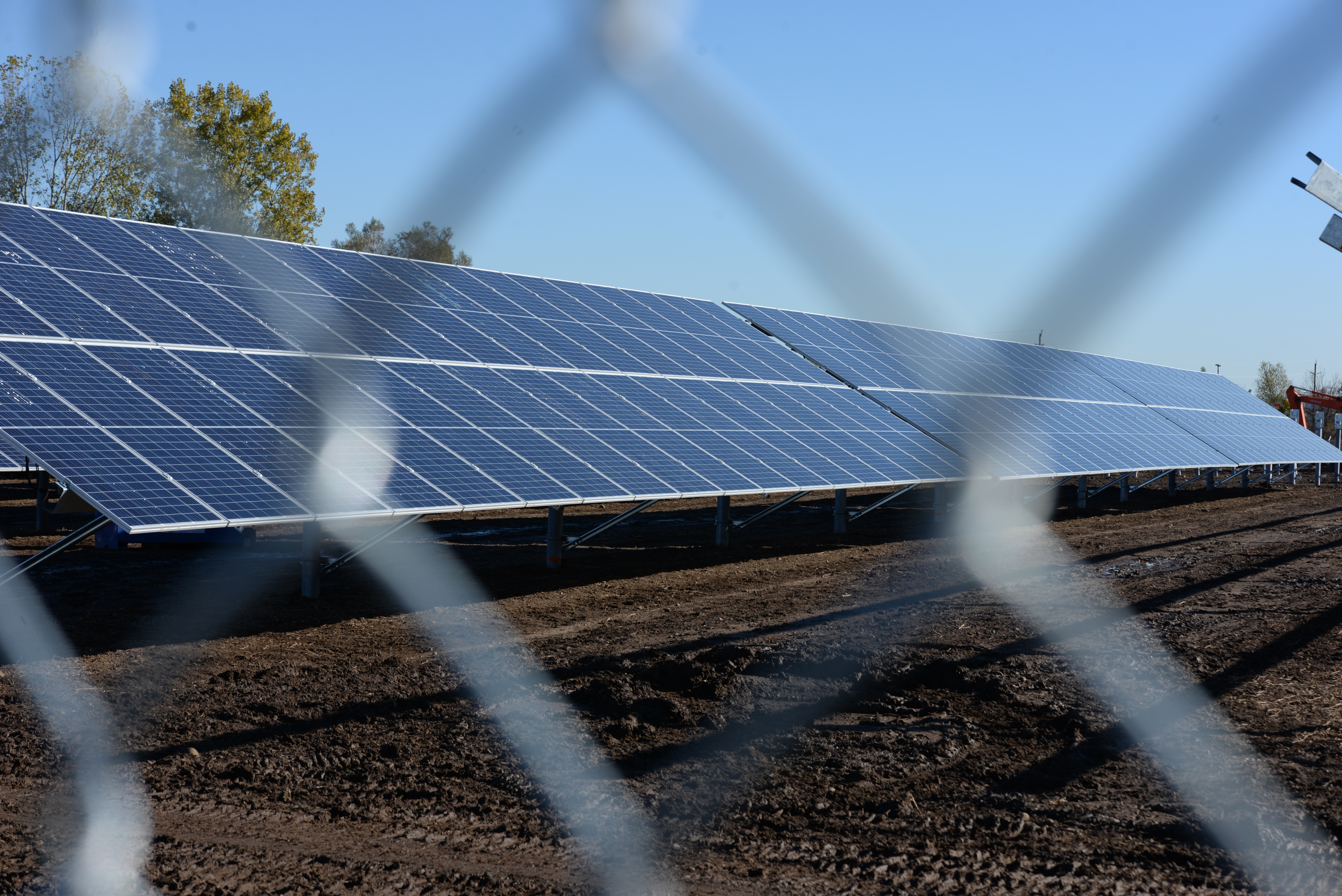Across Canada and around the world, political leaders, research scientists and advocacy groups continue to debate the best approaches for addressing the critical issue of climate change. But whether it’s best achieved through taxation or incentive programs, taking proactive measures to reduce greenhouse gas (GHG) emissions is widely accepted as the best approach for reducing the impacts of climate change for a greener, more sustainable future.

Conestoga installed a 500 kW solar photovoltaic system at the Cambridge campus that will generate close to 800 MWh of clean power each year, reducing demand and emissions from Ontario’s natural gas-fired power plants.
At Conestoga, sustainability concerns are embedded in a wide range of programs, from Construction Engineering Technology and Project & Facility Management to Interior Design and Sustainable Business Management. These programs are preparing students not only to address current and emerging workforce needs, but also to be contributors to advancing sustainability within their future workplaces. Developing technology for a sustainable future is also among the college’s top applied research priorities, with a particular focus on advanced recycling for waste electronics.
Given the strong focus on sustainability and reduced emissions in classrooms and laboratories, it comes as little surprise that the college also walks its talk, placing environmental sustainability at the forefront of both new development projects and ongoing operations.
Conestoga took a major step forward with the construction of the Engineering & Technology campus in Cambridge, which was built with a focus on the sustainable use of energy and carbon. Opened in 2011, it was among the first post-secondary campuses in Ontario to be awarded LEED (Leadership in Energy and Environmental Design) Silver certification by the Canada Green Building Council.
Since that time, Conestoga has continued to enhance sustainability features across its growing network of campuses.
Over the last year, in partnership with Blackstone Energy Services, the college installed a 500 kW solar photovoltaic system at the Cambridge campus that will generate close to 800 MWh of clean power each year, reducing demand and emissions from Ontario’s natural gas-fired power plants. The project was completed with funding provided by Ontario’s Ministry of Training, Colleges and Universities.
The solar project powers a 225 tonne ground-source geothermal heat pump that replaces traditional heating and cooling equipment such as gas-fired boilers, hot water heating systems, chillers and cooling towers.
The result: a 90 per cent reduction of GHG at the campus, which represents 390 tonnes of GHG emissions annually, the equivalent of removing nearly 100 cars from the road.
A recent major expansion at the Waterloo campus included the installation of solar photovoltaic cells as well as chilled water storage, low-flow water fixtures, LED lighting and demand controlled lighting, among other features. Combined, they will achieve 50 per cent more energy efficiency than levels proposed in the model national energy code. A multi-million dollar renovation to the exterior façade of the Guelph campus, which included the installation of new windows, is also part of the college’s ongoing energy initiatives that will result in additional emissions reductions.
According to Tony Sasso, who leads Utilities Sustainability & Facilities Information Systems at Conestoga, these projects place the college at the forefront in sustainability among the province’s colleges.
Earlier this year, Conestoga also received a Community Environmental Fund Sustainability Grant from Waterloo Region to support the installation of electric vehicle (EV) charging stations at the college’s Doon and Waterloo campuses.
“The initial installations will serve as beta sites,” explained Sasso. “To signal our role as environmental leaders in the community, it’s our overall goal to have four electric vehicle charging stations at every campus so that we can serve current and future EV owners.”
While large-scale renovations and sustainability projects unfold across Conestoga’s network of campuses, efforts are also underway within the college community to engage employees and students in waste diversion. Rachel Lowe, recently hired as the college’s first full-time sustainability coordinator, is undertaking waste audits at all campuses, and will develop goals to increase the college’s waste diversion numbers in the future.
She will also support Conestoga’s future participation in Sustainability Waterloo Region’s annual Carbon Cleanse Challenge — a series of sustainability challenges that follow weekly themes around heating, electricity, waste and commuting.
This article originally appeared in the fall 2019 edition of Conestoga’s Connections: Building Communities and Careers. The magazine includes profiles of new and expanded campus facilities and initiatives, while highlighting some of the outstanding students, employees and friends who contribute to the success of the college and the broader community.
Connections is available in digital format online; print copies are available through Corporate Communications.
